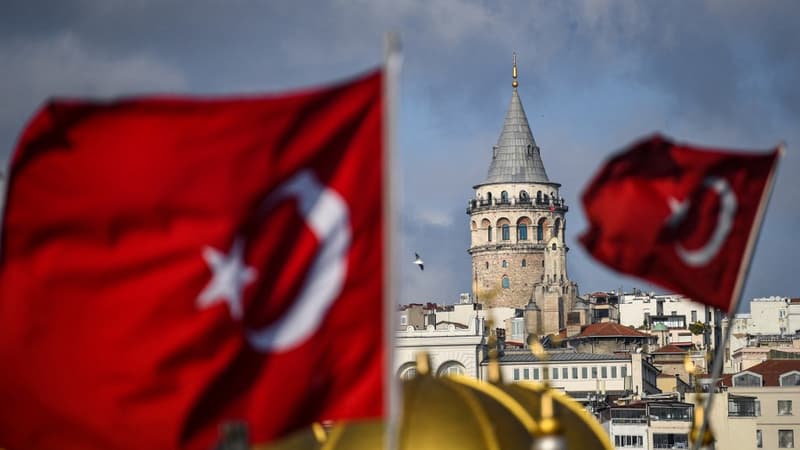Ali Golpinar no longer knows where to put the dozens of letters he sends to his constituents every day and which, when not delivered, end up in his office as “muhtar”, district mayor on the outskirts of Ankara, the Turkish capital. Notifications of non-payments, proceedings or judicial summons: the number of these letters, a large part of which are debt collection, has doubled in two years to reach some forty daily in this modest district of almost 25,000 inhabitants.
“These are just undelivered letters. Imagine the total number. People can no longer pay their debts,” says the muhtar. According to the Turkish press, 24 million recovery files were waiting before the country’s courts in August. The amount of non-performing loans from individuals rose from 17 to 29 billion Turkish liras ($1.55 billion) between March and September, according to Turkey’s Banking Regulatory Agency.
The increase in indebtedness is one of the consequences of the very high inflation that hits Turkey, higher than 84% in one year. More than 40% of workers have to settle for the minimum wage, which will go from $300 to $450 on January 1. But with the rise in rents (+163% in one year in Ankara, +144% in Istanbul), housing expenses will continue to absorb almost all low wages, underlines Hacer Foggo, head of the fight against poverty at the CHP. the main Turkish opposition party.
purchases on credit
In this context, an old practice has become popular again: purchases on credit in neighborhood shops. “Asking for a bank loan is risky. But the local shopkeeper knows you, he won’t deny you,” Ali Golpinar analyzes. Based on trust, with no signing of documents or interest rates, these credit purchases are the last option for some over-indebted families. “More and more customers are asking to pay on credit,” confirms Yuksel Kurt, a shopkeeper in the Keçioren district, in Ankara’s northern suburbs.
“Some I have to deny because I know they will never reimburse me. If a debt is not paid after six months, we know that it must be forgotten, ”she says, showing the pages torn from her notebook where she writes down the debts. Bread, biscuits, oil… credit purchases often refer to basic needs, but add to already long lists of debts. “Many pay off their debts by borrowing elsewhere,” says Yuksel Kurt. Embarrassed, a young woman who came in to buy cigarettes on credit refuses to speak.
In the neighboring bakery, Cemal Aygun reminds us that the merchants themselves are often in debt. “I owe 10,000 Turkish lira ($535) to my flour supplier… Every month I ask my friends to help me,” he says. Until 2021, the Turkish government encouraged this debt spiral, says economist Erinç Yeldan. “Access to bank loans has been facilitated (…) to promote virtual growth,” she explains.
insufficient help
Consequence: people without stable employment or insufficient income have obtained loans that they are now unable to repay, says Hacer Foggo. “They are faced with dilemmas: pay the rent, take their son to the doctor or pay off the loan,” she laments. In municipalities run by the Turkish opposition, such as those in Istanbul and Ankara, a website makes it possible to pay the water and gas bills of those most in need. But no organization is specifically responsible for over-indebtedness.
“There are concrete actions, reduced to acts of charity, without it being institutionalized”, laments Erinç Yeldan. Government aid for the poorest exists but is insufficient, Judge Hacer Foggo. However, with the proximity of the presidential and legislative elections in June 2023, the government multiplies the initiatives. President Recep Tayyip Erdogan thus announced in early November the cancellation of debts of less than 2,000 Turkish liras ($105), provided the creditor agrees.
Ali Golpinar, however, remains skeptical: “I don’t know anyone who has been able to benefit from it,” he says.
Source: BFM TV


